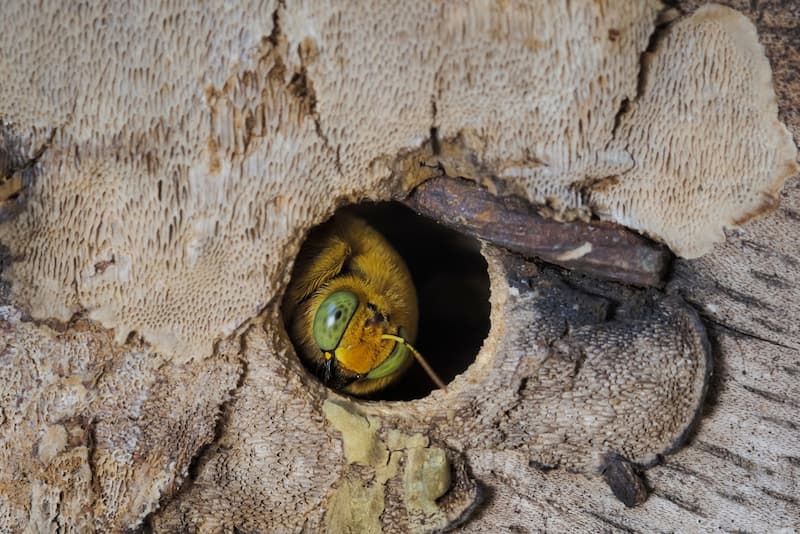Gardens are full of plants, insects, and other animals that live together in a vibrant, living environment. Many insects are considered pests because they hurt plants, but some, like wasps, are very important for keeping the ecosystem in balance. We’ll talk about the tricky mix between wasps and getting rid of garden pests here.
The Good Thing About Wasps:
Because they can sting, wasps are often wrongly thought of as just annoying bugs. There are, however, some kinds of wasps that are good for your garden. They eat many kinds of insects that are bad for plants and are nature’s bug control. Some of these are whiteflies, caterpillars, aphids, and other common plant pests.
Wasps that feed on other insects:
Parasitoid wasps are a type of wasp that is especially good at getting rid of pests naturally. Pest bugs are used by these wasps to lay their eggs on or inside their bodies. When the wasp eggs hatch, they eat the host, which gets rid of the pest. Chemical herbicides may not be needed as much when this natural form of biological control is used.
Act of Balancing:
Although wasps are good at getting rid of pests, they can become a problem if their numbers get too high. Some types of wasps are mean and may sting when they feel threatened. When you or your family spend time in the yard, this can be a big worry. So, it’s very important to find a balance between wasp numbers and pest control in gardens.
Tips for Getting Rid of Wasps and Other Pests:
Figure Out Which Wasps Are Good for Your Garden: Learn how to tell the difference between wasp species that are bad for your garden and those that are good for it. Parasitic wasps are natural pest control agents that should be encouraged to live in your area.
- Plants That Grow Naturally: Put flowers and shrubs that grow naturally in your yard. These plants can bring in good bugs, like wasps, by giving them juice and pollen. Native plants can help keep the environment healthy.
- Chemical Pesticides: Don’t use too many chemical pesticides in your yard. Some good bugs, like wasps, can get hurt by these. To keep your garden healthy, choose natural or organic ways to get rid of pests.
- Watch Over Wasp Nests: In your yard, keep an eye on any wasp nests. If you see a nest in a place where people could be hurt, you might want to move it or get professional help. Do not try to get rid of a nest without the right tools and information.
- Offer a place to live: Some wasps build their nests in holes that are already there or on old plant roots. Leave some parts of your garden alone so that helpful wasps can find places to nest.
- Regular plant Care: Take good care of your plant. Cut back and get rid of any dead or sick plants right away. This can make it harder for pests to hide, which means wasps don’t have to hunt them down.
- Learn: Find out about the habits and life processes of the different kinds of wasps that live in your area. With this information, you can make smart choices about how to deal with wasp numbers.
- Personal Safety: If you need to, wear protective clothing when you work in our yard. This can help keep you from getting stung by a defensive wasp by chance.
As a conclusion:
To get the right balance of wasps and pest control in your yard, you need to know what each species of wasp does. Some wasps are very important for getting rid of pests naturally, while others can be annoying because they are violent. You can make your garden grow well while reducing the risks that come with wasp populations by encouraging a healthy environment, staying away from chemical pesticides, and being aware of the presence of helpful wasps. It’s a beautiful and eco-friendly way to take care of your yard at the same time.
Wasp Control Newmarket, We understand that wasps serve a vital role in our ecosystem as beneficial and visually striking insects. They contribute to pollination, control pests, and typically carry out their tasks without causing disruptions to humans.
